SPEAKERS

Annalee Newitz
Annalee Newitz is a journalist and author of fiction and non-fiction, a contributor to publications such as Popular Science, Wired and The New York Times, and former editor
in chief of websites Gizmodo and
io9. Their novels include The Future of Another Timeline and The Terraformers, and they co-host the award-winning podcast Our Opinions Are Correct.
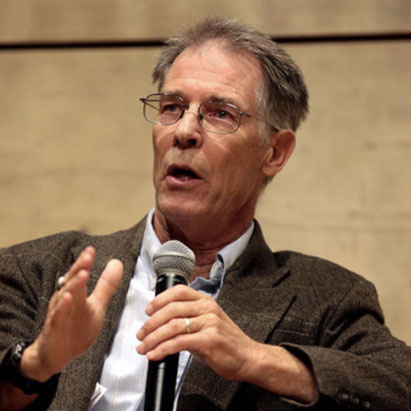
Kim Stanley Robinson
Kim Stanley Robinson is the author of 22 novels, including the Mars
trilogy, New York 2140 and The Ministry for the Future.
His writings address such themes as nature, ecology, sustainability, social justice and climate change. In 2018 he was awarded the Arthur C. Clarke Award for Imagination in Service to Society.
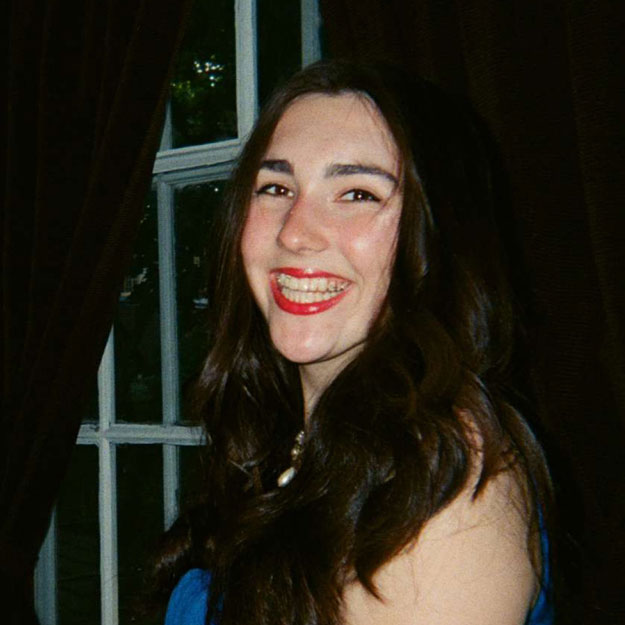
Rachel Barker
Rachel Barker is in her second year of undergraduate studies at McGill. As an Art History major, she sees art as a pivotal force in the collective drive to save the planet. She believes art can shift perspectives towards hopeful frames of mind, ultimately encouraging action. During the conference, she hopes to share how and why art is a momentously powerful tool in the fight for climate justice.

Dr. Christopher Barrington-Leigh is an Associate Professor at McGill University. His research has a focus on empirical and quantitative assessments of human life satisfaction, and their
implications for economic, social, and environmental policy. He uses large international as well as national surveys, experiments, and economic modelling to understand individual, community, and global happiness. He teaches courses on the economics of well-being and on
environmental economics.
He originally trained in upper atmospheric and space plasma physics at MIT., Stanford, and Berkeley, and later retrained in Economics at the University of British Columbia.

Dr. Elena Bennett is Professor and Canada Research Chair in Sustainability Science. She is a founding member of the Seeds of Good Anthropocenes project, which focuses on using radical transformative experiments in society as ‘seeds’ to improve storytelling, sense-making, and knowledge about how we might achieve a “good Anthropocene.”

Geneviève Blouin
Geneviève Blouin has written four novels and more than fifty short stories, published in magazines such as Solaris, XYZ and OnSpec and which have received several prizes. Her works span numerous genres, with hopeful twists. She won the 2016 Canada-Japan Literary Award for her third novel and was a finalist of the Crime Writers of Canada Award for her fourth (Le Mouroir des anges, Éditions Alire). She has a Master’s degree in History and works full time as a writer and editor.

Daphne Chalmers is studying towards a MA at McGill in education and society. Her thesis research investigates how we can use hope to improve educational methods in university classes to better mobilize students to partake in climate change action and counter climate-anxiety. Also involved in youth led community initiatives, she is passionate about bridging the gap between academic research and community empowerment, helping to mobilize the next generation of activists to fight for our collective future.

Dr. Diane Dechief (pronounced deCHEF) (she/her)is Faculty Lecturer in Science Communication, Office of Science Education, Faculty of Science, and joined McGill’s Office of Science Education in the summer of 2021 after designing and teaching writing courses at the McGill Writing Centre for the past six years. Since 2017, she has focused on teaching and research in science communication. Diane is course coordinator for FSCI 198: Climate Crisis and Climate Actions and FSCI 500: Science Communication and Outreach.

A.M. Dellamonica’s first novel, Indigo Springs, won the Sunburst Award for Canadian Literature of the Fantastic. Their fourth, A Daughter of No Nation, won the 2016 Prix Aurora for Best Novel. They have published over forty short stories in Tor.com, Asimovs SF, The Magazine of Fantasy and SF, and elsewhere, along with poetry, pop culture essays, and the 2021 play Dressed as People, which they co-wrote with Kelly Robson and Amal El-Mohtar. Their newest novels, Gamechanger and Dealbreaker, were released under the name L.X. Beckett and are solarpunk adventures that imagine humanity surviving climate change and creating a post-carbon economy.

Dr. Jayne Engle has a background in urban and regional planning, policy, governance, and innovation; social research, and participatory practice. She co-authored the book Sacred Civics: Building Seven Generation Cities. She’s mission co-holder of Dark Matter Labs and co-lead of 7GenCities, a new collaborative for future-fit city building and Earth stewardship. Jayne holds a PhD in Urban Planning, Policy and Design from McGill University where she’s an Adjunct Professor and is a Futures Fellow with the Future of Canada Project.

Dr. Julia Freeman is an interdisciplinary social scientist concerned with sustainability challenges and their attendant social controversies. Her work has investigated the governance of emergent agricultural biotechnologies in the Global South across both urban and rural contexts. Current interests include climate hope and learning, and human-plant interactions.

Elson Galang is a Ph.D. Candidate in the Department of Natural Resource Sciences of McGill University. He organizes and facilitates collaborative visioning processes to co-imagine plausible environmental futures of land and seascapes in Canada. His dissertation explores how such futures visioning can impact participating environmental actors’ knowledge, goals, and emotions.

Irene (Rene) Gregory-Eaves is the Canada Research Chair in Freshwater Ecology and Global Change, a mother and an artist. She has been on faculty at McGill since 2004 in the Department of Biology and is an Associate Member of the Bieler School of Environment. She pursued a career in environmental science with the belief that this was the best way to bring solutions on how to protect our planet. She now fully embraces that science is only part of the answer and is excited to create dialogues with other disciplines to bring about a more sustainable future.

Dr. Blane Harvey is an Associate Professor and William Dawson Scholar in the Department of Integrated Studies in Education at McGill University, where he leads the Leadership and Learning for Sustainability Lab. He is an interdisciplinary scholar whose work spans across the social and natural sciences on the themes of learning, collaboration, environmental change and sustainable development. Dr. Harvey’s research investigates how climate change knowledge is produced, validated and communicated, and how facilitated learning and knowledge sharing can support action on climate change.

Dr. Michael Hendricks is an Associate Professor and Canada Research Chair in Neurobiology and Behaviour at McGill University. He received a BA in Biology from Bowdoin College and a PhD in Biological Sciences from the National University of Singapore, followed by postdoctoral research at the Center for Brain Science at Harvard University. His research uses the nematode Caenorhabditis elegans to study the neural basis of navigation behaviours and the influence of the developmental environment on foraging circuits in the brain. In addition, he is engaged with advocacy and research work to promote equity in science funding.
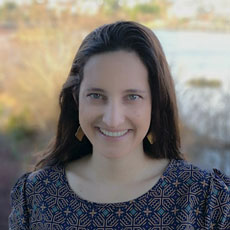
Amy Janzwood is an assistant professor in the Department of Political Science and the Bieler School of the Environment at McGill University. Her research explores the comparative politics of energy and the environment, including the contested politics of fossil fuel production and the policy pathways that move us towards more just and sustainable energy systems. She is the Vice Chair of the Steering Committee of the Women & Inclusivity in Sustainable Energy Research (WISER) network, on the Board Directors of the Canadian Political Science Association (CPSA), and a member of the Climate Social Science Network (CSSN).

Dr. Sébastien Jodoin is an Associate Professor in the Faculty of Law of McGill University, where he holds the Canada Research Chair in Human Rights, Health, and the Environment. Drawing on his lived experience with multiple sclerosis, Dr. Jodoin co-founded and directs the Disability-Inclusive Climate Action Research Programme, a pioneering initiative to generate, co-produce, and translate knowledge at the intersections of disability and climate justice. His research has been cited by the Intergovernmental Panel on Climate Change and the United Nations High Commissioner for Human Rights and has been covered by media outlets worldwide.
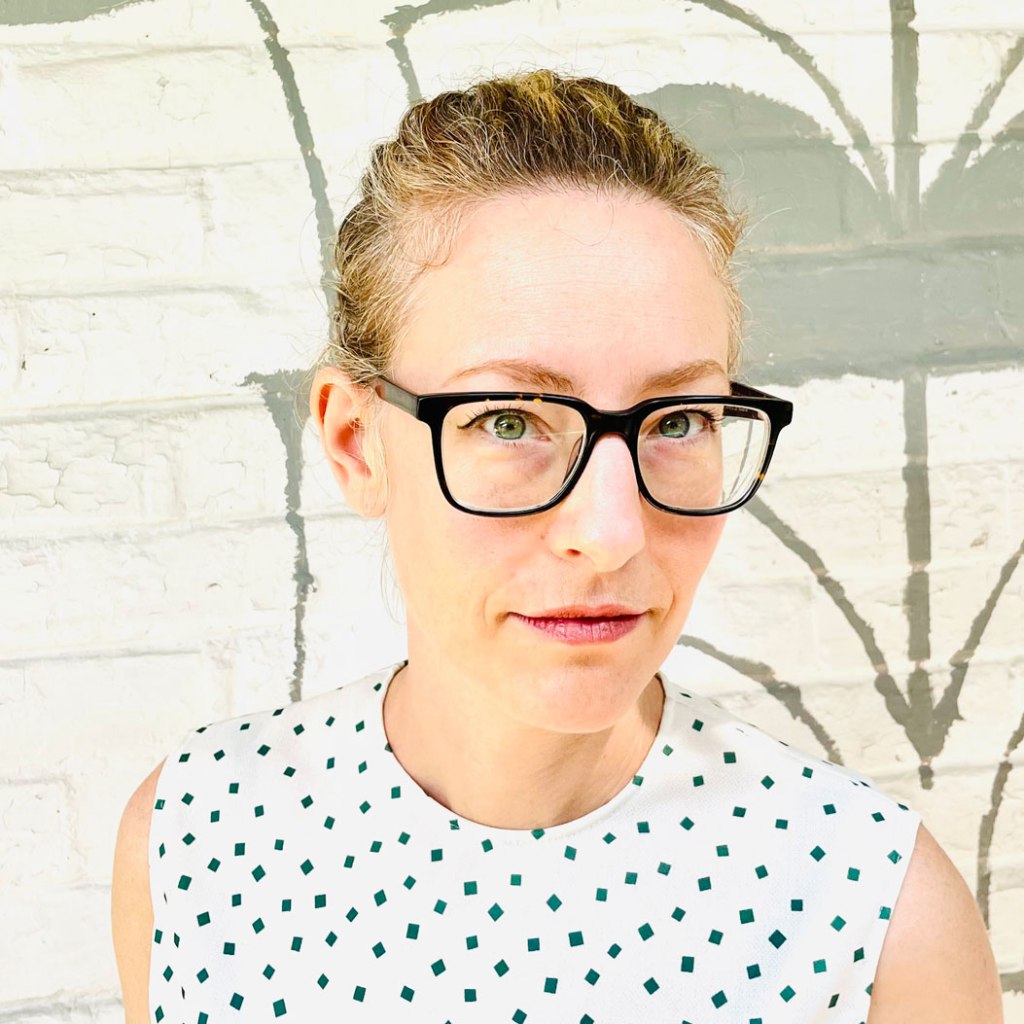
Hillary Kaell is associate professor of anthropology and religion at McGill University, where she holds a William Dawson Chair. Her most recent book is Christian Globalism at Home: Child Sponsorship in the United States (Princeton, 2020), winner of the 2021 Schaff Prize from the American Society of Church History. She co-edits the Contemporary Anthropology of Religion book series at Palgrave Macmillan and directs TERA (Technology, Ecology, Religion, Art), an interdisciplinary collective of scholars and artists. Her current project explores ecological and spiritual disruptions on the Outer Banks of North Carolina.

Rich Larson was born in Galmi, Niger, has lived in Spain and Czech Republic, and currently writes from Montreal, Canada. He is the author of the novels Ymir and Annex, as well as the collection Tomorrow Factory. His fiction has been translated into over a dozen languages, including Polish, Italian, Romanian, and Japanese, and adapted into an Emmy-winning episode of LOVE DEATH + ROBOTS.

Lydia Lepki
Lydia Lepki is an undergraduate student at McGill University, in her second year of studying English Literature. She recognizes the power literature wields in eliciting emotions and adjusting perspectives. She believes literature can illuminate a hopeful and more productive attitude in communicating the climate crisis of today, which is what she hopes to underline at the Hopeful Futures student workshop.

Nik Luka is cross-appointed to the Peter Guo-hua Fu School of Architecture and the School of Urban Planning as well as Associate Director of the Centre for Interdisciplinary Research on Montreal at McGill University. As an ethnographer specialised in housing, social practice, and landscape studies, he works in close collaboration with civil-society organisations and state agencies on coproduction through community-based design.

Kevin Manaugh is an Associate Professor jointly appointed in the Bieler School of Environment and Department of Geography. His research focuses on the role of urban transportation systems on a variety of environmental, health, and social outcomes, with a particular focus on equity in transport planning.

Nina Munteanu is a Canadian limnologist/ecologist, novelist and award-winning short story author of eco-fiction, science fiction and fantasy. Her work has appeared in Neo-Opsis Science Fiction Magazine, Chiaroscuro, subTerrain, Apex Magazine, Metastellar, and several anthologies. Nina currently lives in Toronto where she teaches writing at the University of Toronto and George Brown College. Her book Water Is… (Pixl Press)—a scientific study and personal journey as limnologist, mother, and teacher—was Margaret Atwood’s pick in 2016 in the New York Times’ “The Year in Reading.” Nina’s most recent novel, A Diary in the Age of Water released in 2020 by Inanna Publications, is about four generations of women and their relationship to water in a rapidly changing world.

Jim Nicell is formally trained as a chemical and environmental engineer and has been a professor in the Department of Civil Engineering at McGill University for more than three decades. His research is focused on preventing, assessing, and remediating the impacts of pollutants on human and environmental health with a particular focus on contaminants of emerging concern, plastics, and odours. He is affiliated with McGill’s Bieler School of Environment, the Department of Bioengineering, and the Trottier Institute for Sustainability in Engineering and Design. Recently, he completed his second five-year term as Dean of its Faculty of Engineering.
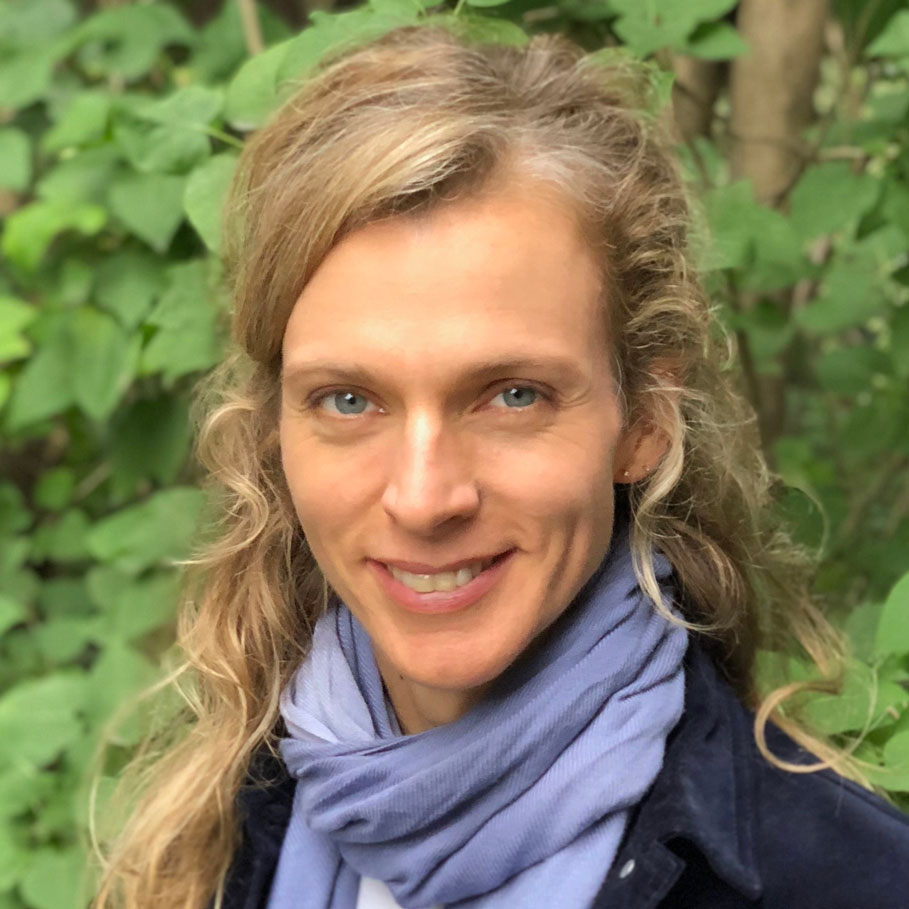
Associate Professor in the Department of Languages, Literatures, and Cultures, Stephanie Posthumus teaches European environmental literature and climate fiction at McGill University. A pioneering scholar of French ecocriticism, she has also published in the fields of animal and plant studies and has been involved in various projects in the emerging area of the digital environmental humanities. She loves working in her local community garden and hiking with her furry and not so furry companions.

Andréa Renaud-Simard
Born in 1985 in Lac Saint-Jean, Andréa Renaud-Simard now lives in Montreal. After embarking on a somewhat eclectic academic journey, from theatre to psychology, she now works as a speech therapist. Consequently, her professional interests unite science and humanity, which is why science fiction, which also tends to combine the two, has become something of a passion for her. In 2017, Andréa won the Solaris Prize for her short story, Les tisseurs. Since then, she has published a number of short stories in Solaris, Brins d’éternité, and La république du Centaure. Her first novel, Le livre ardent, was published by VLB in 2021.

Richard Shearmur began his career as a real-estate consultant in Europe, before undertaking graduate studies in Montreal and entering academia in 1998. He is currently Professor of Urban Planning at McGill and a registered urban planner. His research focuses on innovation in the private and public sectors, and the discourses that enshroud it. He is increasingly interested in how (and by whom) visions of the future are constructed, appropriated, and incorporated into seemingly mundane urban planning decisions. He is a little concerned that urban planners do not always articulate the future-building processes that (implicitly) guide their day-to-day work.

Su J Sokol is a social rights advocate and a writer of speculative and interstitial fiction. A former legal services lawyer from New York City, xe now makes Montréal xyr home. Sokol is the author of three novels: Cycling to Asylum, which was long-listed for the Sunburst Award for Excellence in Canadian Literature of the Fantastic, Run J Run, and Zee, a finalist for the Janet Savage Blachford Prize for Children’s and Young Adult Literature. Sokol’s short fiction and essays have appeared in various magazines and anthologies.
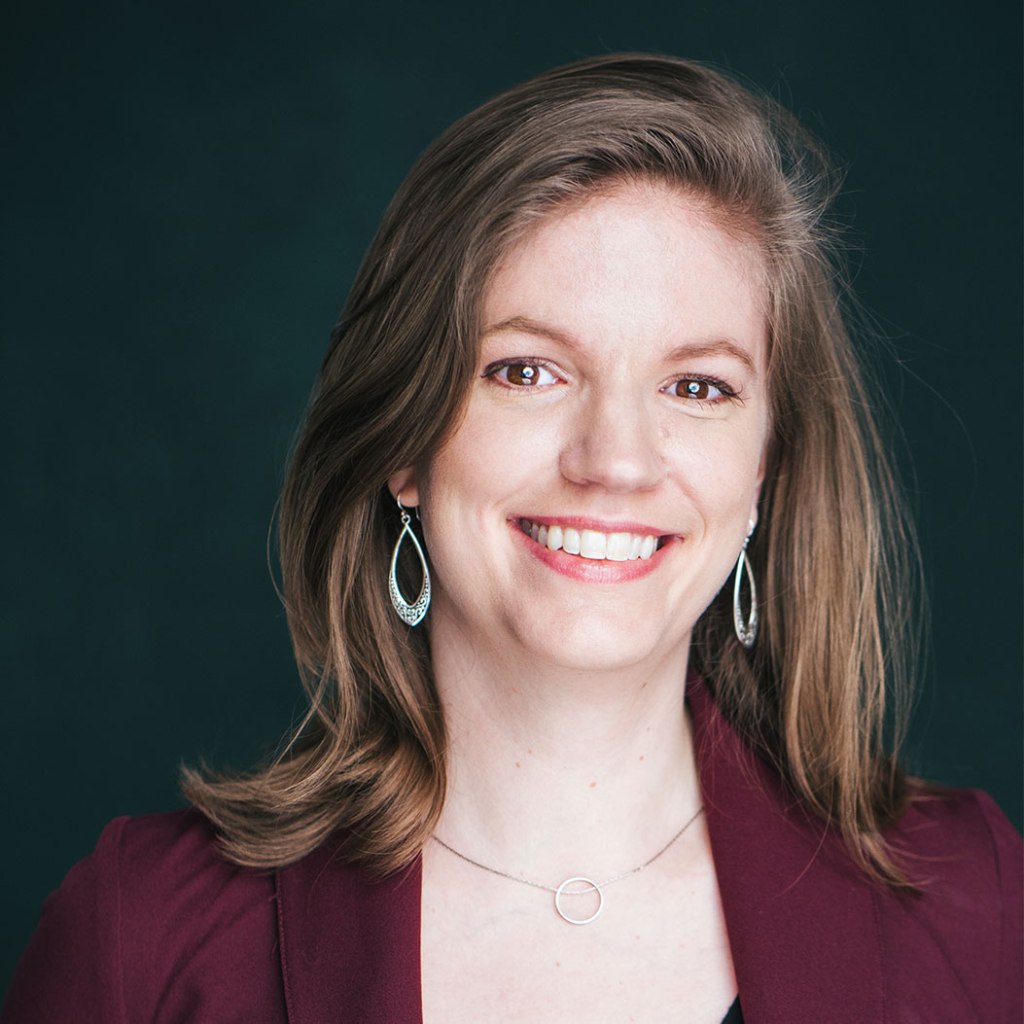
Natalya Gomez is a climate scientist, geophysicist and Associate Professor at McGill University and a Canada Research Chair in Ice Sheet – Sea Level Interactions. Her scientific research focuses on understanding how the polar ice sheets in Greenland and Antarctica and global sea levels respond to climate change, and the impacts on coastal environments and populations. She is passionate about education and outreach to communicate about climate change in hopeful and actionable ways. She organizes international, interdisciplinary summer schools on climate for graduate students and is on the development and teaching team for McGill’s campus-wide course FSCI198 Climate Crisis and Climate Action.

Renée Sieber
Renée Sieber is an Associate Professor, jointly appointed in the Department of Geography and the Bieler School of Environment at McGill University. She has 20+ years experience working at the intersection of civic empowerment and computational technologies, from computerized mapping and climate modelling to artificial intelligence. She also has been a science fiction fan for most of her life and has been active in world science fiction conventions. For the Dublin WorldCon in 2019, she co-designed 100 program items on science and/or politics.

Lisa Bornstein
Lisa Bornstein teaches in the School of Urban Planning, where she currently serves as Director. Lisa brings an interest in storytelling, worldbuilding, and post-catastrophe visioning to both her academic work and her enjoyment of science fiction. Her research focuses on the politics of public deliberations and planning, with a strong interest in how we – as individuals, groups, and societies – deal with uncertainty and crisis. Current projects in Quebec, Chile, Colombia, Ecuador, and Cuba explore dynamics of climate change adaptation and resiliency. In that and other research, she explores how people use stories to construct history, make claims about current entitlements, and shape visions of possible futures.

Caroline Wagner is an Assistant Professor in the Department of Bioengineering at McGill University. Her research program focusses on understanding the interaction between pathogens and biological fluids, and modeling the effect of such interactions on population level disease dynamics. She holds an MSc and PhD in Mechanical Engineering from MIT and completed her postdoctoral training in mathematical disease modeling at Princeton University. Since the onset of the COVID-19 pandemic, Caroline and her colleagues have developed models to explore the effect of various factors on the future burden and timing of COVID-19 infections. This work has been covered and presented in outlets including Quebec Science, La Presse, and Wired.
FAQ
When DOES IT START?
October 12th, 2023, and it ends on the 13th.
How much does it cost?
The conference and activities are free, invite your friends and family.
Who can attend?
While the Station de l’Avenir creative workshop is geared towards anyone, kids and adults, the keynote conference targets an adult audience.

